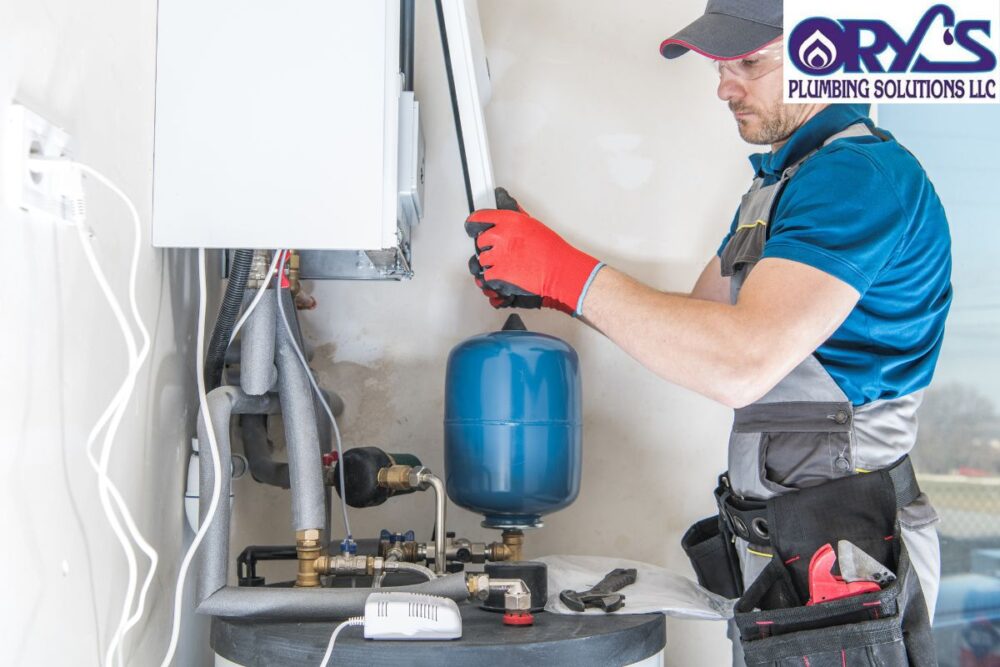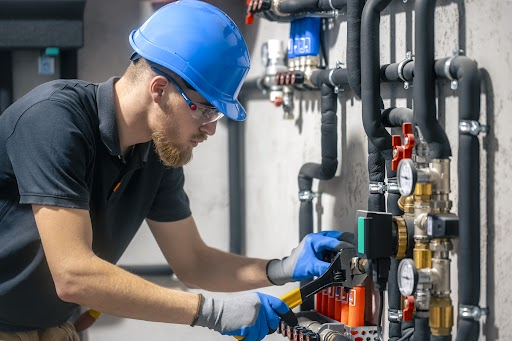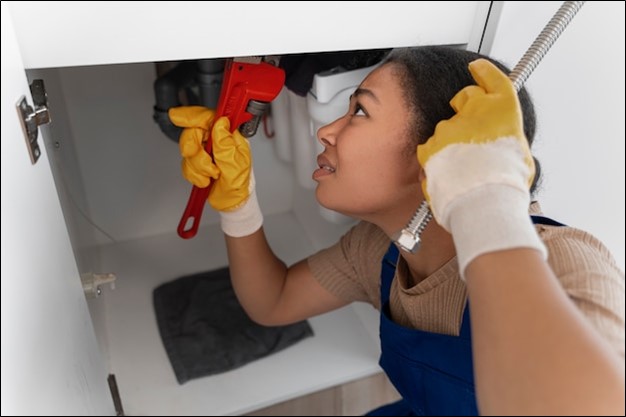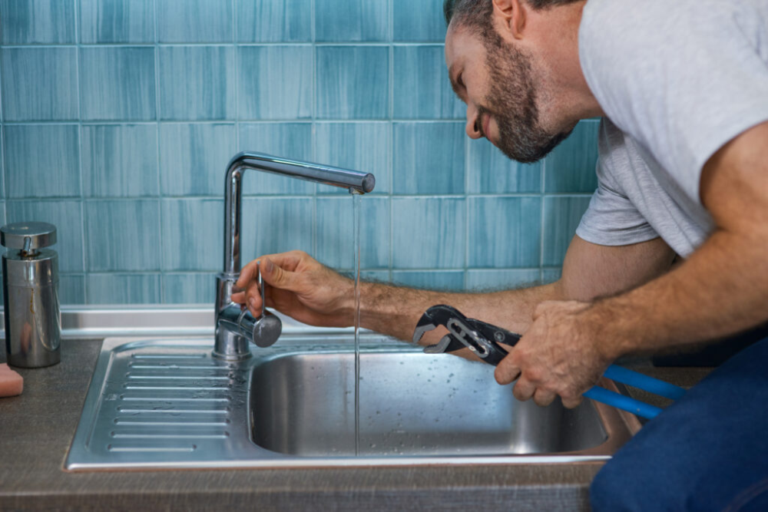What Causes Gas Water Heater to Stop Working
Key Takeaways
- Pilot light issues, sediment buildup, and thermostat failure are common reasons gas water heaters stop working.
- Sediment and rust can reduce heating efficiency and cause long-term damage if not addressed.
- Regular maintenance like flushing the tank and checking the anode rod can extend the water heater’s lifespan.
- Leaks, strange noises, or lack of hot water often indicate it’s time for repairs or professional inspection.
A gas water heater is an essential appliance that provides hot water for your entire home, but when it stops working, it can be a real inconvenience. Understanding the common reasons why a gas water heater might fail can help you troubleshoot issues and determine if you need professional help. This guide will explore typical problems that cause gas water heaters to stop working, explain the factors that influence their lifespan, provide essential maintenance tips, and answer frequently asked questions to help you keep your hot water flowing.
What Causes a Gas Water Heater to Stop Working?
It can be really frustrating when your gas water heater stops working. Sometimes it’s a simple fix, but other times you might need a pro. Let’s look at some of the main reasons why your water heater might be acting up and what you can do about it.
Pilot Light Problems
The pilot light is like a tiny flame that lights the main burner in your water heater. If this little flame goes out, your water heater can’t heat water.
- Clogged or Worn Out Parts: Sometimes, the little tube or opening where the pilot light flame comes out can get blocked with dirt or just get old and worn. This stops the gas from getting to the pilot light properly.
- Bad Thermocouple: The thermocouple is a safety device. It’s a small rod that sits in the pilot flame. If the pilot light goes out, the thermocouple tells the gas valve to shut off the gas, preventing a gas leak. If the thermocouple is old, dirty, or loose, it might think the pilot light is out even when it’s on, and then it will shut off the gas to the pilot.
- Air in the Gas Line: Just like a straw that’s empty, if there’s air in your gas line, the gas might not flow smoothly to the pilot light. This can happen after a gas company works on your lines.
- Sulfuric Smell: If you smell something like rotten eggs (sulfur), it could mean there’s a gas leak. This is serious and you should turn off the gas immediately and call your gas company or a professional.
Thermostat Troubles
The thermostat controls the water temperature. If it’s malfunctioning, it can lead to no hot water or water that isn’t hot enough.
- Incorrect Setting: Ensure the thermostat is set to the desired temperature.
- Faulty Thermostat: The thermostat itself can fail, preventing the burner from igniting or shutting off at the correct temperature.
- Sediment Impact: Sediment buildup at the bottom of the tank can insulate the water, making it harder for the thermostat to accurately sense the water temperature.
Sediment Buildup
Minerals and debris can collect at the bottom of the water heater tank over time, forming sediment.
- Noises: Sediment can cause popping, hissing, or banging noises as water gets trapped and boils beneath it.
- Reduced Heating Efficiency: This buildup acts as an insulator, making it harder for the heat to reach the water, which can result in less hot water or longer heating times.
- Maintenance: Regularly flushing the tank helps remove this sediment and maintain efficiency.
Leaks
Water pooling around the unit indicates a leak, which can stem from various components.
- Condensation: In some cases, condensation may form on the tank, especially in cooler environments.
- Corrosion: Rust and corrosion can lead to leaks, particularly from the bottom of the tank, suggesting the tank itself may need replacement.
- Valve Issues: Leaks can also occur from faulty or loose valves, such as the drain valve or the temperature and pressure (T&P) relief valve.
Dip Tube Problems
The dip tube directs cold incoming water to the bottom of the tank for heating. If the dip tube is broken or deteriorated, cold water may mix with the hot water at the top of the tank, causing a reduced supply of hot water.
Tank Size Issues
If a water heater is too small for the household’s demands, it may not provide enough hot water. If your tank is too small for the number of people or the amount of hot water usage will run out of hot water quickly and might wear out faster due to constant operation.
Other Potential Causes
Several other factors can cause a gas water heater to malfunction.
- Gas Valve Malfunction: A faulty gas valve can prevent the burner from receiving gas.
- Tank Corrosion: Visible corrosion on the tank can indicate it’s nearing the end of its lifespan.
- High Water Pressure: Water pressure above 80 PSI can damage the water heater.
- Faulty T&P Valve: A malfunctioning temperature and pressure relief valve can lead to leaks or other issues.
- Ventilation Issues: Improper venting or a lack of fresh air supply can also cause problems.
Factors Affecting Gas Water Heater Lifespan
The longevity of your gas water heater depends on several factors.
- Water Quality: Hard water, which contains high mineral content, can accelerate sediment buildup and component wear.
- Maintenance: Regular maintenance, such as flushing the tank and checking the anode rod, significantly impacts how long the water heater lasts.
- Installation: Proper installation ensures the unit functions efficiently and avoids early problems.
- Usage: High demand for hot water can lead to increased wear and tear on the unit.
- Age of Components: Parts like the thermocouple and anode rod naturally degrade over time.
Tips for Keeping Your Gas Water Heater Working
Regular maintenance can prevent many common issues and help your water heater last longer.
- Flush the Tank Annually: Draining the tank yearly removes sediment, improving efficiency and preventing noises.
- Inspect the Anode Rod: This rod corrodes to protect the tank. It should be checked periodically and replaced when significantly worn, typically every 3–5 years.
- Test the T&P Valve: Ensure the temperature and pressure relief valve is functioning correctly by testing it annually.
- Insulate Pipes: Insulating hot water pipes helps retain heat, meaning the water heater doesn’t have to work as hard.
- Set the Temperature Appropriately: Setting the thermostat around 120°F is recommended for safety and efficiency.
- Listen for Unusual Sounds: Strange noises like popping or banging can indicate sediment buildup or other internal problems.
- Professional Servicing: Schedule periodic check-ups with a plumber to catch potential issues early.
Conclusion
Understanding the common reasons why a gas water heater stops working is crucial for troubleshooting and maintenance. Many problems, such as pilot light issues or sediment buildup, can often be addressed with simple fixes or regular care. By performing routine maintenance and being aware of potential problems, you can help ensure your gas water heater operates reliably for years to come.
Frequently Asked Questions
How do I relight the pilot light on my gas water heater?
Check your water heater’s manual for specific instructions. Typically, you turn the gas control knob to “pilot,” hold it down while lighting the pilot flame with a long match or lighter, and then continue holding the knob for about a minute after it lights before turning it to “on.”
How often should I flush my water heater tank?
It’s recommended to flush your water heater tank annually to remove sediment.
Why is my hot water rusty?
Rusty hot water often indicates that the anode rod inside the tank is corroding and needs replacement, or that the tank itself may be rusting through.
Can I fix a gas water heater leak myself?
Minor leaks from valves or fittings might be repairable, but leaks from the tank itself usually require professional replacement.
How long do gas water heaters typically last?
A gas water heater typically lasts between 10 to 15 years with regular maintenance.
Still dealing with water heater troubles?
Don’t stop here—get the answers you need about lifespan, repairs, and performance. Check out these expert guides to stay ahead of bigger problems:
5 Common Problems of Water Heaters
How Long Does a Hot Water Heater Last?
What Size Tankless Water Heater Do I Need?
What Are the Signs of a Failing Water Heater?
How Long Does a Water Heater Take to Heat Up?
What Causes a Tankless Water Heater to Stop Working?
Should I Repair or Replace My Water Heater?
Get the clarity you need before the next cold shower hits.






